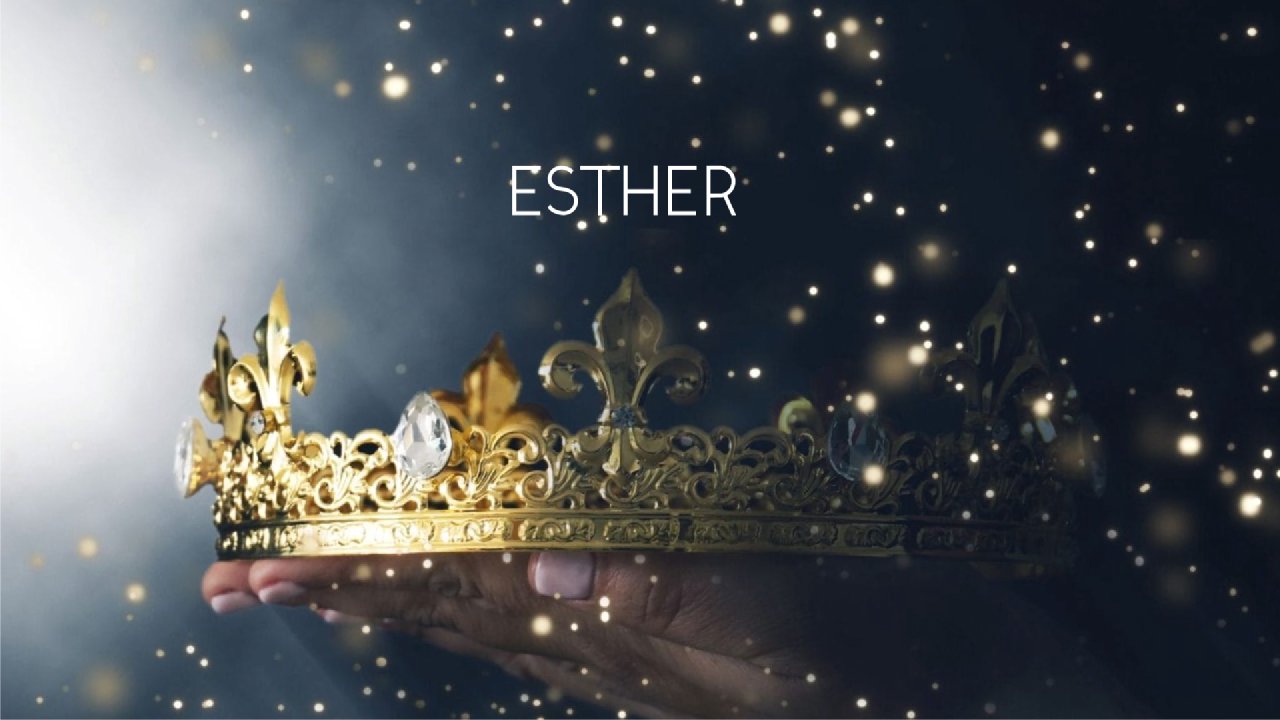Favorite Takeaways:
• How do you relate to Esther’s first response to Mordecai’s request?
• Reflection: How does it impact you to know that you, like Esther, were created for “such a time as this?”
“And he made from one man every nation of mankind to live on all the face of the earth, having determined allotted periods and the boundaries of their dwelling place (Acts 17: 26).”
• Reflection: Describe a time when God has moved in your heart to action, when you were faced with something you didn’t want to do, but you weren’t able to deny his nudging.
• “We have a natural proneness for seeing the difficulties rather than anticipating what GOD can do. We tend to set our gaze on our deficiencies rather than God’s sufficient grace and love. We focus on our human limitations rather than God’s limitless power.” Ian Duguid
• Ian Duguid also says, “Isn’t it a shame when God has to work AROUND us instead of THROUGH us?” God really wanted to work THROUGH Esther, so he placed her where she was, in this position, at this time. God is no less intentional with our lives than he was with hers.
• “The safest place you’ll ever be is in the will of the God.” HB Charles Jr.
• Reflection: What opportunities have you missed out on to participate in God’s work because you were scared or uncomfortable or because the stakes seemed too high?
• God will equip us with the faith to trust him, and to act if it’s his will for us to do so, he will equip us to participate in the work he has called us to, even when we don’t know how it will turn out or what the end result will be.
• Esther’s story is a beautiful foreshadowing of a much bigger sacrifice that would come centuries later, when we get to another man who found himself in a place and position “for such a time as this.” John 12:27-28: “Now is my soul troubled. And what shall I say? ‘Father, save me from this hour’? But for this purpose, I have come to this hour. Father, glorify your name.” Then a voice came from heaven: “I have glorified it, and I will glorify it again.” Jesus came at this hour, at this time, to submit to His Father’s will, to intercede for us, to be obedient to the point death on a cross, saving us once for all. God couldn’t work around Jesus, he HAD to work through him. God didn’t have to equip him with the faith to participate in this plan… because it was HIS plan too.

Week Five
October 6, 2021 • Jaime Carnaggio
Week Ten
November 10, 2021 • Mitzi Barber • Esther 9:1–19
• Our battles belong to the Lord, and he never loses! He never has and he never will! • Three times we are told the Jews "didn’t take the plunder.” They did only what was necessary to defend themselves, which is in line with God’s original command against the Amalakites, found in 1 Samuel 15. • Take note of the unity at the end of this passage. The Jews (and others!) were gathered together, full of joy and gladness, to rest and rejoice and feast! This battle united them! • Though invisible, God is always with us, fighting for us. Sometimes he fights alone, and sometimes he invites us to fight WITH him, like we see in Esther 9. • In what ways do we fight the battles we face today? What are our weapons, or armor? See Ephesians 6! • What is your focus when facing any battle? Your own inadequacy or God’s faithfulness, sovereignty, and power? How would it change the view of our battles if we had an eternal, God-centered perspective?
Week Nine
November 3, 2021 • Jaime Carnaggio • Esther 8
• We see a bunch of great reversals take place in this chapter. Take note of them from Esther 3:10-4:4, and also Esther 7:3-4. • Esther didn't need the house of Haman because there was something even more important to her: the deliverance of the Jews. Take note of the passion and burden she feels for the Jews, who she calls "my people... my kindred." • This upcoming "holy war" may not sit well with us, but these wars were necessary at this time in redemptive history, to preserve and protect God's people at a time when our salvation was not yet secure. From the beginning of time, God’s war has been against sin and evil… we seem to want God to destroy sin and evil but leave humanity alone, but those things don’t exist apart from humanity.” Lydia Brownback • We can rest knowing, that there will be no more holy wars in this era… not until the final holy war that comes at the end times, when God’s final judgment will fall on the wicked. And on that day of final judgment, we can rest assured knowing that a better Esther, a better mediator, someone who has pleaded our case before the King… Jesus Christ, who left the glories of heaven… fought his own personal holy war on our behalf, conquering death once for all, so that we who are rebellious sinners may have everlasting life with him. This is the Greatest Reversal to which all the reversals in Esther’s story point. [Iain Duguid] • If the people of Persia could rejoice and celebrate with "light and joy and gladness and honor," over the hope of potential victory... how much more should WE rejoice that the victory has already been won!? • Our hope is certain. We still may fight these earthly battles, but we don’t fight from a defeated position, but from a delivered one. We, too, can be full of “light and gladness and joy and honor." “You turned my lament into dancing; you removed my sackcloth and clothed me with gladness” (Psalm 30:11). “Let the people praise you, God; let all the people praise you. Let the nations rejoice and shout for joy” (Psalm 67:3-4). • So who holds the power at the end of this chapter? Who’s the hero? Not Haman. Not the king. And not even Esther or Mordecai. The LORD always has and always will hold the power. And because of that, because the LORD holds the power (and not US), we can rest assured that all is going according to plan, and we can celebrate our secure salvation in him, our guaranteed victory. Because the Lord holds the power, we can celebrate this great reversal of our eternal fate. We have "light and joy and gladness and honor" in the irrevocable and irreversible power of the Lord our God.
Week Eight
October 27, 2021 • Jaime Carnaggio • Esther 7
• In this chapter we finally see Esther make her big ask to have mercy on the Jews and revoke the decree, which was very risky because 1) The king is fickle 2) It required her to reveal her identity as a Jew 3) It would cost the king 10,000 talents 4) It was an irrevocable decree! But, as Ecclesiastes 3: 7 says, "There's a time to be silent, and a time to speak." • Take notice of Esther's choice of words in verses 13-14, not just what she chooses to say, but how she says it. It was very courageous, personal, and king-centered, and she was careful not to place any blame on the king himself (even though he was ultimately responsible!) • Consider all the ironies in this chapter: Haman, who had sought to take Esther's life, now begs that she spare his. Haman dies the humiliating death he plotted for Mordecai just 24 hours before. Haman, who wanted to kill a Jew for not falling down before him was ultimately executed on a charge of falling down inappropriately before a Jew! • Consider the interplay in this chapter between God's sovereignty and human responsibility. God's sovereignty is worked out as Esther climatically confronts the king. However, he worked out his sovereignty through her actions. She wasn’t a passive participant in his plans. She had responsibility, she had to have the resolve, the boldness, the courage to confront the king and make this big ask. • In God's economy, what is high will be humbled and what is low will be exalted. Read Luke 14: 7-11.





